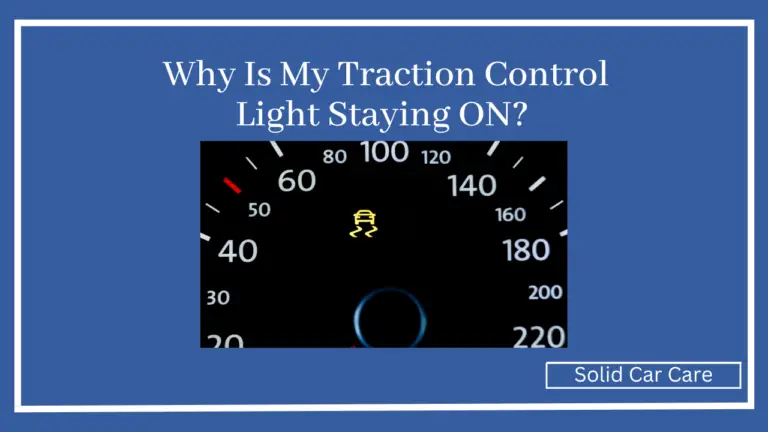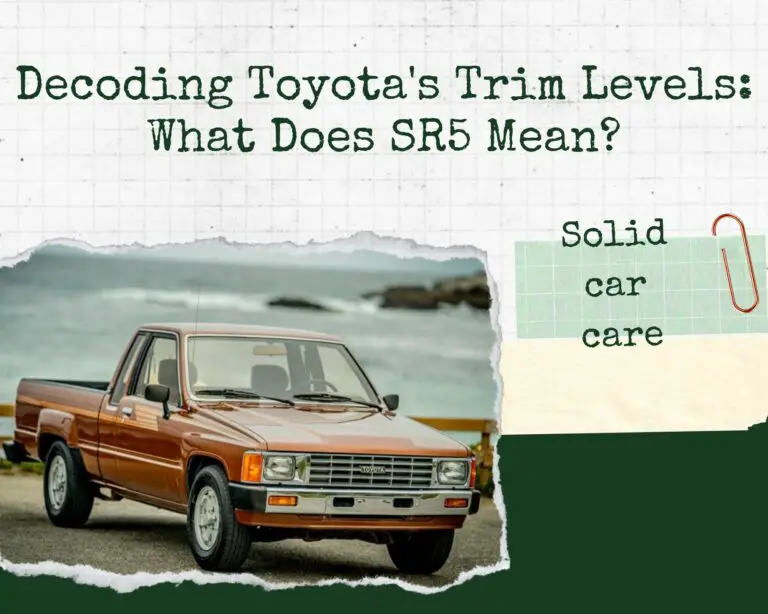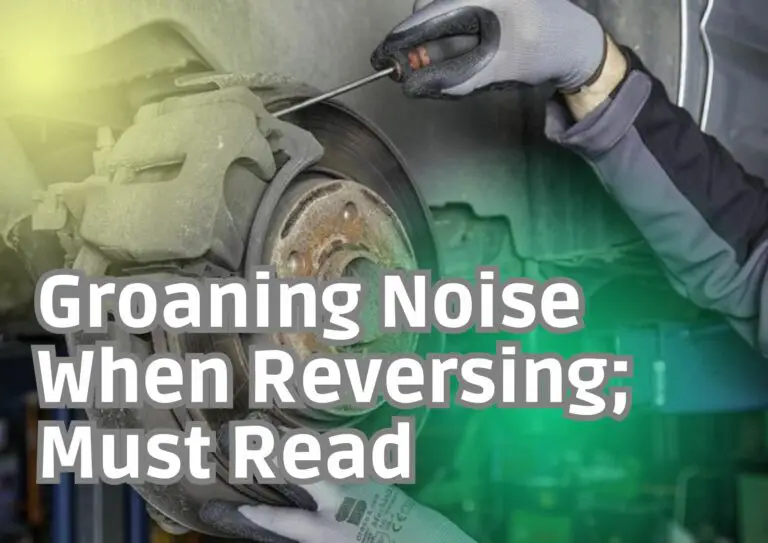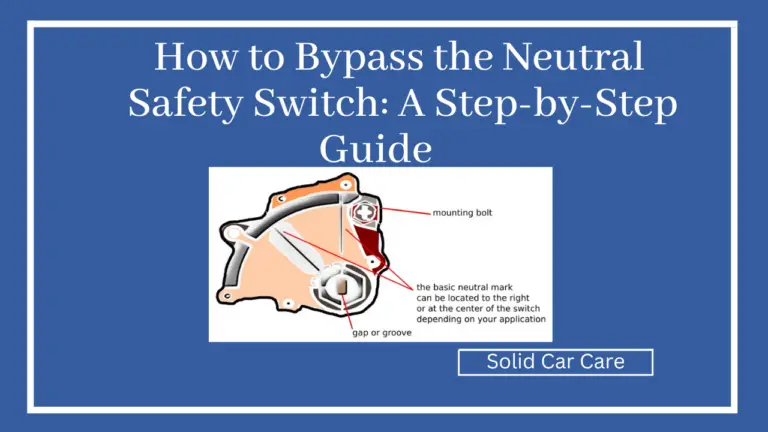Knock Sensor Code Keeps Coming Back; What Can You Do?
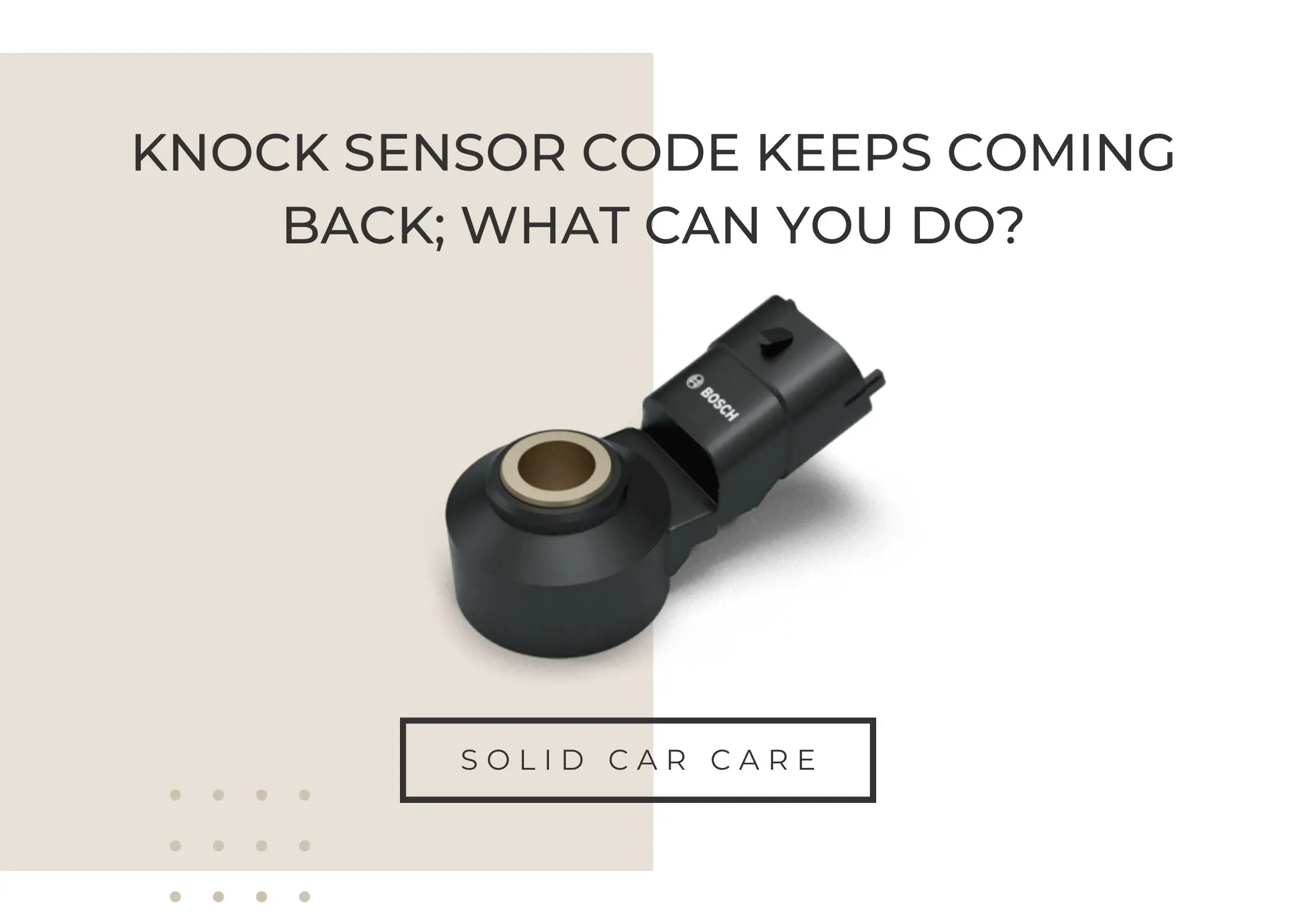
Why do you keep getting a knock sensor code? The majority of the time, a corroded terminal or wire is sending a bad signal. Depending on the vehicle, the dealer or a tuner can read or listen to the sensor while the car is in motion to determine when at least it is being triggered and to assist in isolating causes.
If there is a knock, you can try a higher grade of gas to stop it, check your plugs, wires, etc., and perform a basic tune-up. Knock results from timing issues or too much heat causing the gas to ignite earlier than intended.
This article discusses everything you need to know when your knock sensor keeps you disturbed. So I invite you to stick around until the end to find out what you’ve been looking for.
Table of Contents
- What is a Knock sensor, and what does it do?
- What are the symptoms of a bad knock sensor and its related parts?
- Why does the knock sensor code keeps coming back?
- How to reset the knock sensor? Step by step guide
- What are the codes associated with the knock sensor?
- Replaced knock sensor, still getting code; Causes and fixing
- Is it OK to drive without a knock sensor?
- Some related FAQs
What is a Knock sensor, and what does it do?
A knock sensor is a type of sensor that is used in modern combustion engines to detect abnormal engine vibrations or “knocks” caused by pre-ignition or detonation. When the sensor detects these vibrations, it sends a signal to the engine control unit (ECU) that causes the ignition timing or fuel delivery to be adjusted in order to prevent further engine damage.
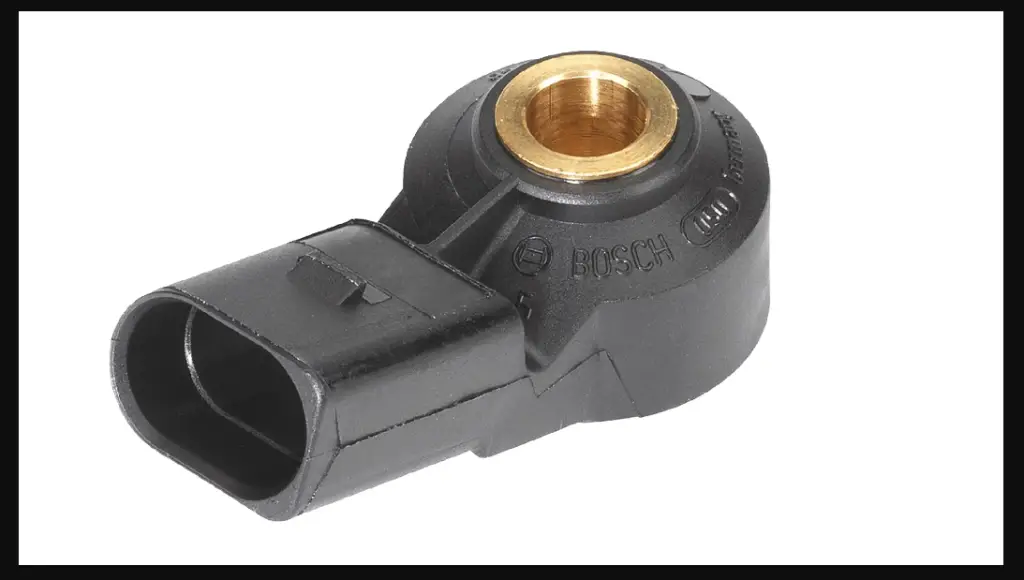
The knock sensor is typically mounted on the engine block and is intended to detect high-frequency engine vibrations caused by combustion. These vibrations can occur when the fuel mixture in the engine’s cylinders ignites prematurely or under excessive pressure, resulting in a knocking or pinging sound.
The knock sensor detects these vibrations and allows the ECU to adjust the engine’s operation in real-time, preventing engine damage and optimizing performance. This can improve fuel efficiency, lower emissions, and extend engine life.
What are the symptoms of a bad knock sensor and its related parts?
A bad knock sensor or its related parts can cause various symptoms in a vehicle. Here are some common signs that may indicate a problem with the knock sensor:
- Engine misfires
A faulty knock sensor can cause the engine to misfire, resulting in a rough idle, poor acceleration, and decreased fuel efficiency.
- Illuminated check engine light
A malfunctioning knock sensor or related parts can turn on the check engine light. A diagnostic trouble code (DTC) related to the knock sensor may be stored in the ECU’s memory.
- Engine damage
A knock sensor that fails to detect engine knock or pinging can cause damage to the engine over time. This can lead to increased engine wear, decreased performance, and eventual engine failure.
- Decreased fuel efficiency
A faulty knock sensor can cause the engine to run rich, decreasing fuel efficiency and increasing emissions.
- Knocking or pinging sound
If the knock sensor is not working correctly, the engine may produce a knocking or pinging sound, especially under heavy loads or acceleration.
- Loss of power
A damaged knock sensor can cause the engine to lose power, making it difficult to drive or accelerate.
It’s essential to have a trained mechanic diagnose and fix any problems with the knock sensor or its related parts to avoid costly engine damage and ensure the vehicle operates correctly.
Car Making Popping Noise When Parked; Causes And FIxing.
solid car care
Why does the knock sensor code keeps coming back?
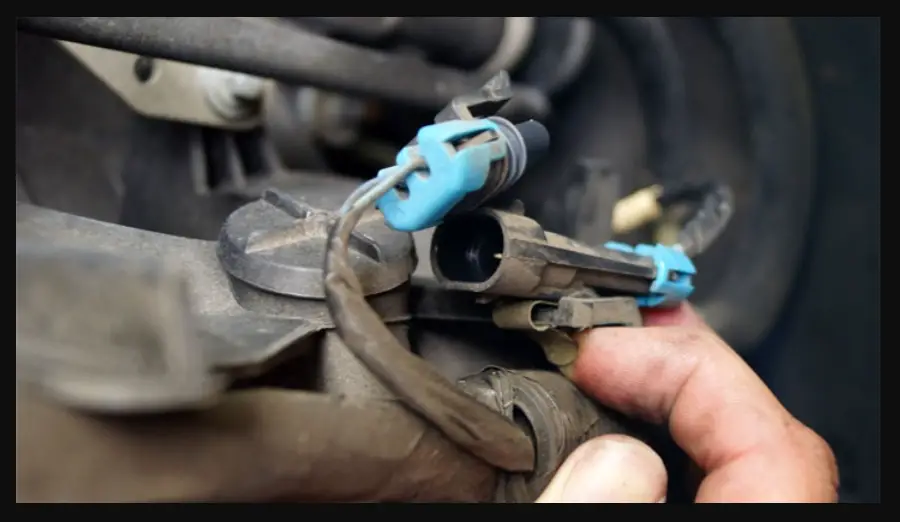
If the knock sensor code keeps returning, there is most likely an underlying issue causing the sensor to malfunction or fail repeatedly. Here are some possible explanations for why the knock sensor code keeps returning:
- Faulty knock sensor
A faulty knock sensor is the most common cause of a knock sensor code recurrence. If the sensor malfunctions, it may produce inaccurate readings or fail to detect engine knock.
- Problems with wiring or connections
The knock sensor is connected to the ECU via a wiring harness. If there is a problem with the wiring or connections, the ECU may not receive accurate sensor readings.
- Engine issues
If there are underlying engine issues such as low oil pressure, dirty fuel injectors, or a malfunctioning EGR valve, the knock sensor may be producing accurate readings. These issues can result in engine knock or pinging, triggering the knock sensor code.
- Problems with the ECU
If the ECU is not functioning properly, it may be unable to receive accurate readings from the knock sensor, causing the code to reappear.
- Incorrect installation
If the knock sensor is not installed correctly, it may not detect engine knock or produce inaccurate readings.
It is critical to have a professional mechanic diagnose the root cause of the knock sensor code in order to avoid costly engine damage and ensure that the vehicle is operating properly.
Can bad spark plugs cause knock sensor code?
Yes, bad spark plugs can potentially trigger a knock sensor code. When spark plugs fail to ignite the air-fuel mixture properly, it can result in incomplete combustion, causing abnormal engine vibrations and pre-ignition, which the knock sensor detects as knocking or pinging.
The engine’s computer may interpret this as a genuine knock event and activate the knock sensor code as a precautionary measure. Addressing spark plug issues can resolve this problem. Regular maintenance, including checking and replacing worn spark plugs, is essential to prevent knock sensor codes and ensure optimal engine performance.
Can bad gas cause knock sensor code?
Yes, bad quality or low-octane gasoline can potentially cause knock sensor codes. Poor fuel quality can lead to incomplete combustion, causing engine knocking.
The knock sensor detects this knocking and triggers a code. Using high-quality fuel with the recommended octane rating and additives can help prevent this issue and maintain engine performance.
Can low oil cause knock sensor code?
Yes, low engine oil levels can potentially trigger a knock sensor code. Insufficient lubrication can lead to increased friction and heat, resulting in abnormal engine vibrations and knocking.
The knock sensor detects these vibrations and may trigger a code. Maintaining proper oil levels and regular oil changes are essential to prevent this issue and ensure optimal engine health.
How to reset the knock sensor? Step by step guide
Resetting a knock sensor typically involves clearing error codes from the vehicle’s engine control module (ECM). However, it’s important to note that simply resetting the sensor won’t address underlying issues causing knock sensor errors. Here’s a general step-by-step guide:
- Gather Necessary Materials: You’ll need a vehicle repair manual, an OBD-II scanner or code reader, and necessary safety equipment.
- Park and Safety Precautions: Ensure the vehicle is parked on a level surface and the engine is turned off. Put on safety gear like gloves and safety glasses.
- Locate OBD-II Port: The OBD-II port is usually located under the dashboard near the steering column. Plug your OBD-II scanner or code reader into the port.
- Turn Ignition On: Turn the ignition key to the “On” position without starting the engine. The scanner should power on.
- Read Error Codes: Use the scanner to read error codes stored in the ECM. Look for codes related to the knock sensor.
- Clear Error Codes: On the scanner’s menu, find the option to clear error codes or reset the ECM. Confirm the action and wait for the process to complete. This clears the error codes, including those related to the knock sensor.
- Turn Ignition Off: Turn off the ignition key and disconnect the OBD-II scanner.
- Start Engine: Start the engine and let it idle for a few minutes. Observe the dashboard for warning lights. If the knock sensor error was the only issue, the light should be off.
It’s crucial to address the underlying cause of a knock sensor error rather than just resetting it. Knock sensor errors often indicate engine-related issues like fuel quality, ignition problems, or timing problems. If you’re not experienced with vehicle repairs, consult a professional mechanic to diagnose and fix the root cause of the issue for long-term reliability.
However, it is important to note that if the knock sensor code has been triggered, the check engine light will remain illuminated until the code has been cleared from the ECU’s memory. This can be done by using an OBD-II scanner, which can read and clear diagnostic trouble codes (DTCs) stored in the ECU’s memory. Once the code has been cleared, the check engine light will turn off.
How long will it take?
The time it takes for the knock sensor code to reset and the check engine light to turn off will vary depending on the make and model of the vehicle, as well as the specific issue that triggered the code.
In some cases, the code may clear immediately after the repair or replacement has been made, while in other cases, it may take several driving cycles for the ECU to recognize that the problem has been resolved and turn off the check engine light.
Do you need to reset ECU after replacing knock sensor?
Yes, resetting the Engine Control Unit (ECU) after replacing the knock sensor is recommended. This allows the ECU to adapt to the new sensor’s readings. Clearing stored error codes and performing an idle relearn procedure can ensure accurate sensor data and optimal engine performance.
The car Idles Fine But Sputters When Accelerating; Why?
solid car care
What are the codes associated with the knock sensor?
There are several diagnostic trouble codes (DTCs) associated with the knock sensor. These codes can vary depending on the make and model of the vehicle, but here are some common codes and their meanings:
- P0325 – Knock Sensor Circuit Malfunction
This code indicates that the ECU has detected a problem with the knock sensor circuit, such as a faulty knock sensor, wiring or connection issues, or a malfunctioning ECU.
- P0326 – Knock Sensor Circuit Range/Performance
This code indicates that the ECU has detected a problem with the knock sensor circuit’s range or performance, such as a weak signal or an out-of-range signal.
- P0327 – Knock Sensor Circuit Low Input
This code indicates that the ECU has detected a low input signal from the knock sensor, which a faulty knock sensor or wiring/connection issues could cause.
- P0328 – Knock Sensor Circuit High Input
This code indicates that the ECU has detected a high input signal from the knock sensor, which a faulty knock sensor or wiring/connection issues could cause.
- P0330 – Knock Sensor 2 Circuit Malfunction
This code indicates that the ECU has detected a problem with the second knock sensor circuit (some vehicles have more than one knock sensor), such as a faulty sensor or wiring/connection issues.
Replaced knock sensor, still getting code; Causes and fixing
If you’ve replaced the knock sensor and are still getting a code related to it, there could be several reasons for this persistent issue:
Wiring or Connector Problems: Check the wiring harness and connectors related to the knock sensor. Damaged or corroded wires, poor connections, or issues with the sensor’s electrical circuit can still trigger a code.
Incorrect Installation: Ensure that the new knock sensor is properly installed and torqued to the manufacturer’s specifications. Improper installation can result in inaccurate readings and trigger the code.
Underlying Engine Issues: The knock sensor code might be a symptom of an underlying engine problem, such as issues with the fuel system, ignition system, or timing. These problems can cause actual knocking or pinging, even with a functioning knock sensor.
Faulty ECM: A malfunctioning engine control module (ECM) might misinterpret sensor readings and trigger incorrect codes. Diagnosing and fixing ECM issues might be necessary.
Vibration or Noise: Excessive engine vibration or noise can generate false knock sensor readings. Check for loose parts, exhaust leaks, or engine mounts that could cause vibrations.
To address this persistent issue:
- Double-check the knock sensor installation.
- Inspect and repair any damaged wiring or connectors.
- Conduct a thorough engine diagnostic to identify and address any underlying problems causing actual knocking.
- If all else fails, consult a professional mechanic or dealership with specialized equipment to pinpoint the exact cause of the code and provide a precise solution.
Is it OK to drive without a knock sensor?
Yes, but driving without a functioning knock sensor is not recommended as it is an important component in protecting the engine from damage.
The knock sensor detects engine knock or pinging, which occurs when the air-fuel mixture in the combustion chamber ignites prematurely or in an uncontrolled manner. This can cause damage to the engine’s pistons, connecting rods, or bearings over time.
Some related FAQs
Can old spark plugs cause knock sensor code?
Yes, old or worn spark plugs can potentially cause a knock sensor code. If the spark plugs are not functioning correctly, they can cause engine misfires, which can trigger the knock sensor to detect abnormal engine vibrations and produce a false positive reading.
Can old fuel cause a knock sensor code?
Yes, old or contaminated fuel can potentially cause a knock sensor code. If the fuel is contaminated with water or other impurities, it can cause the engine to misfire and produce abnormal vibrations that trigger the knock sensor.

